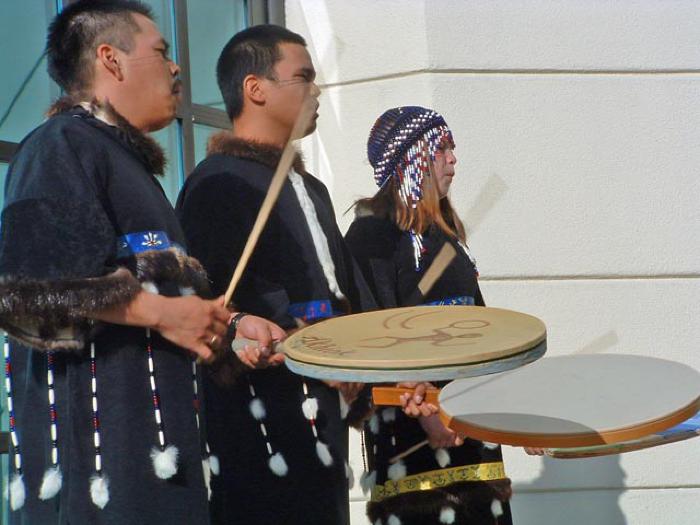Drum, Music — Cauyaq

In the traditional Alutiiq language, the word for drum and music are the same: cauyaq. This duality illustrates the importance of drums to traditional Alutiiq music. Although Alutiiq people also perform with rattles and whistles, the drum, with its penetrating beat, is their main instrument.
Drumming is an ancient practice. Prehistoric petroglyphs from both Afognak and Kodiak islands show people holding drums and archaeological sites with well-preserved wooden artifacts include drum handles and drum rims many hundreds of years old.
In the past, craftsmen made drums by stretching a dehaired seal hide, a seal bladder, or a halibut stomach over a wooden frame. The frame was carved from a single piece of wood, bent into a circle with steam, and lashed together. To the frame, artists attached cross braces and a sturdy handle. Like other ceremonial objects, drums were often decorated. A drum’s skin might be painted with images of spirit helpers or its handle painted and adorned with carvings. Some drum handles displayed tiny masks attached so they faced the audience as the drummer played. A drum handle from an archaeological site in Karluk shows a human face inset with two tiny animal teeth.
Today, artists continue to fashion drums from local wood, carving and bending frame parts to shape. In addition to skin covers, some artisans use a resilient airplane fabric, treated with resin. This fabric is durable but still reverberates with deep resonant tones.
